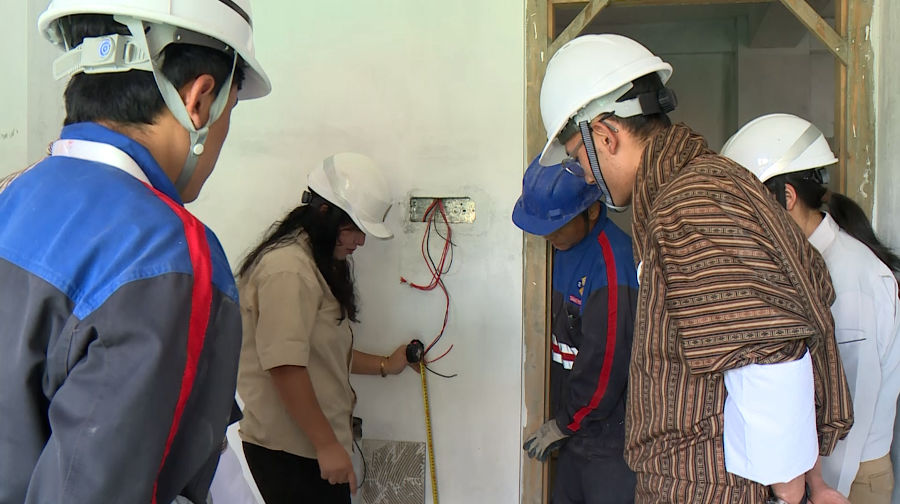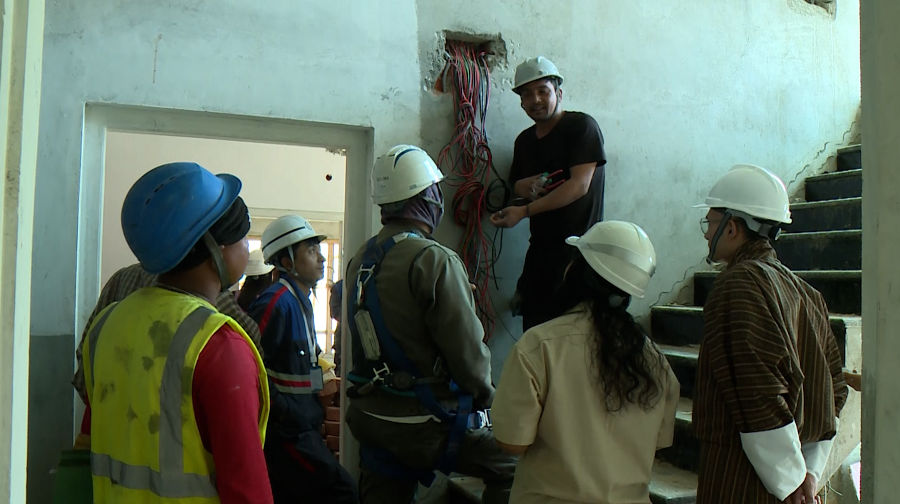 In Bhutan’s construction sector, a common and often debated view is that Bhutanese workers fall short in terms of quality. As a result, many turn to workers from India, despite legal restrictions on hiring them for certain jobs. To address this, the Department of Labour has begun conducting inspections to check work quality and also curb illegal recruitment.
In Bhutan’s construction sector, a common and often debated view is that Bhutanese workers fall short in terms of quality. As a result, many turn to workers from India, despite legal restrictions on hiring them for certain jobs. To address this, the Department of Labour has begun conducting inspections to check work quality and also curb illegal recruitment.
Plumbing and electrical works are among the construction jobs classified as non-critical and reserved exclusively for Bhutanese nationals.

The department says graduates of Technical Training Institutes and other certified Bhutanese workers are fully capable of carrying out these roles.
But officials admit that changing employer perceptions remains a challenge.
“Most employers feel that the quality of work delivered by Bhutanese workers is lacking. Without regular monitoring and inspection, it will be difficult to build trust and assure employers of the standards of our local workers,” said Ugyen Dorji, Coordinator for C4SW, Department of Labour, MoICE.
However, not all employers share this view. Some told BBS that Bhutanese workers are not only skilled but also more convenient to work with.
“Some employers say they prefer foreign workers because of reasonable wages and timeliness. In my case, I prefer Bhutanese workers. Although they may charge a little higher, it is more convenient to work with them,” said Tashi Phuntsho, Employer, Thimphu.
“Bhutanese plumbers and electricians are formally trained, whereas many foreign workers may not have proper training. Some say foreign workers are more punctual, while Bhutanese workers take on multiple projects and fail to meet deadlines. But in my experience, this has not been the case,” said Damchu Gyeltshen, Employer, Thimphu.
The monitoring and inspection will focus on material quality, use of safety equipment, and the way works are carried out.
Experts from a Japanese construction company, Dai Nippon Construction, along with the Bhutan Qualifications and Professionals Certification Authority, Thromde, and other relevant agencies, are involved in the programme.
“Work inspection is very important because it checks whether the materials used meet standards and ensures installations are done properly. This is essential to guarantee that any project functions effectively,” said Nathaniel Degoma, Electrical Expert, Dai Nippon Construction, Japan.
The department added that monitoring is not only to assess work quality but also to identify areas for improvement. Based on the findings, they will determine whether workers need upskilling or if vocational institutes like TTIs need to revise their courses.
Currently, the department has over 300 certified plumbers and electricians registered under it.
Sangay Chozom
Edited by Yeshi Gyaltshen








